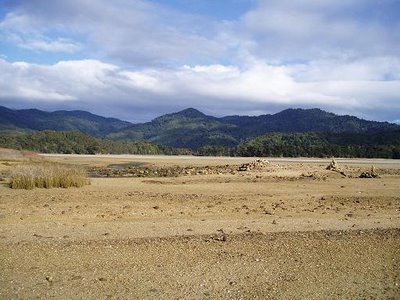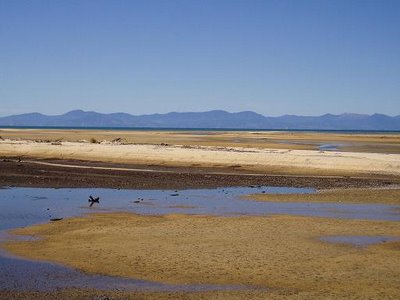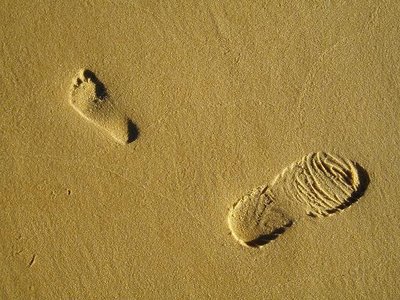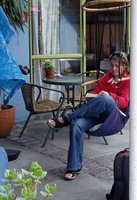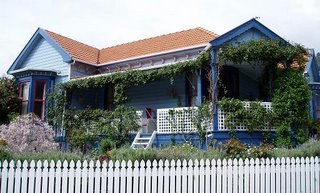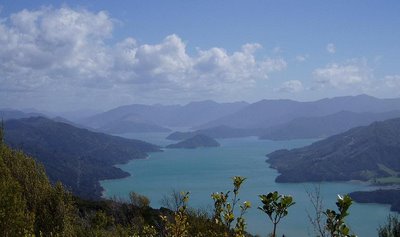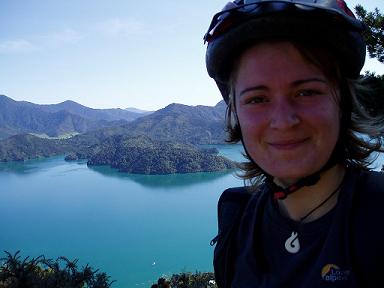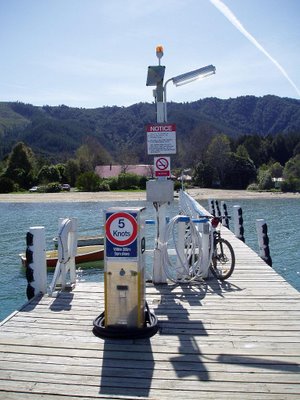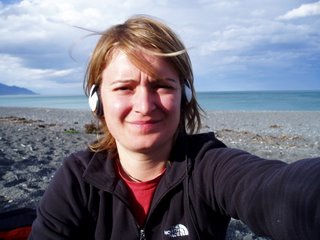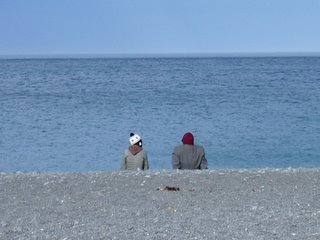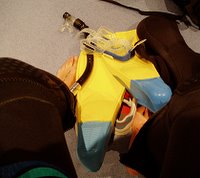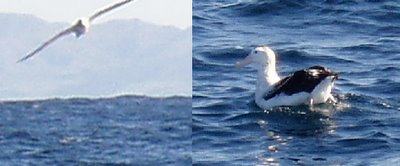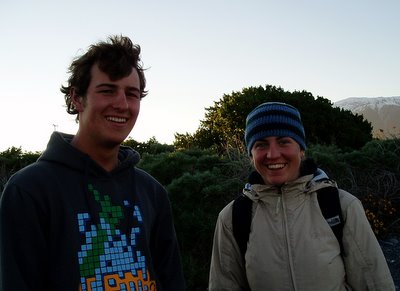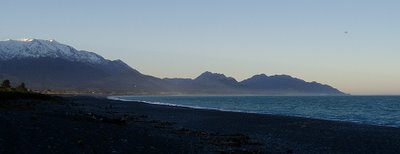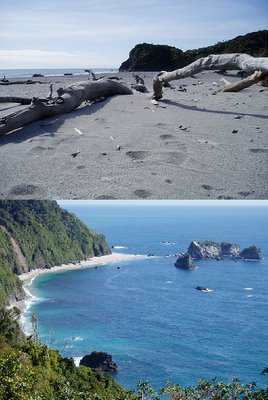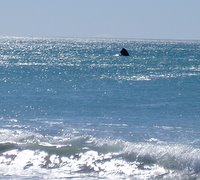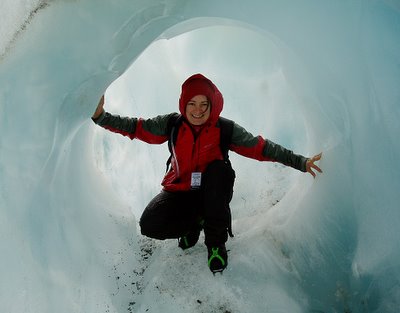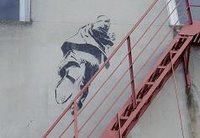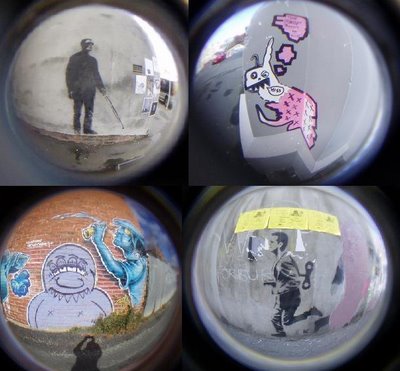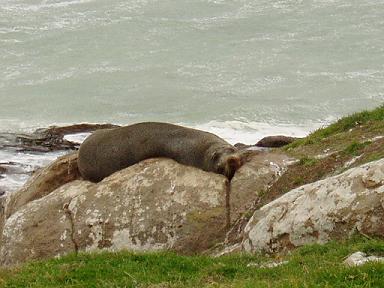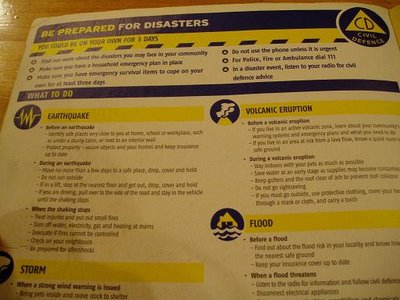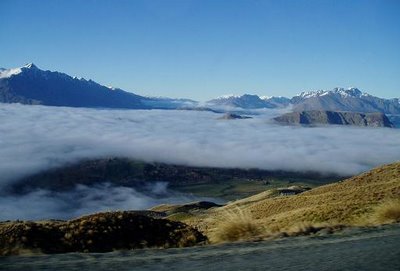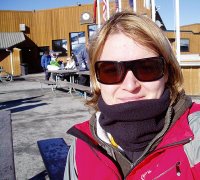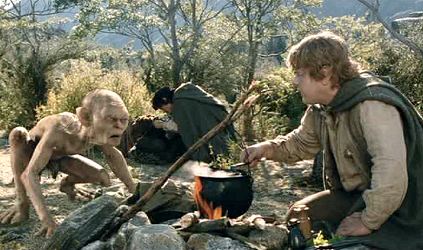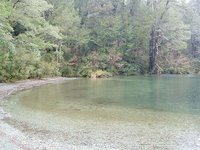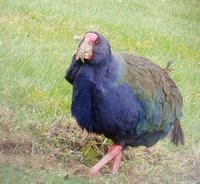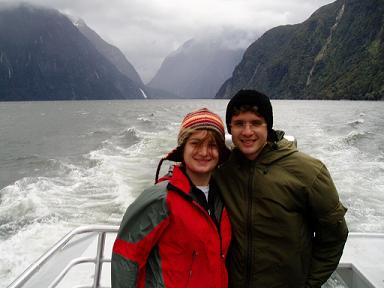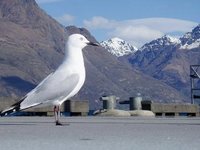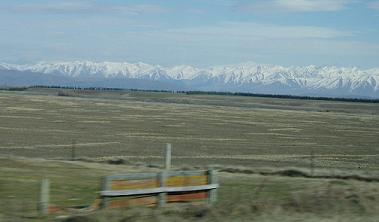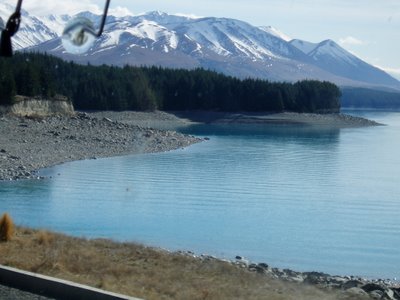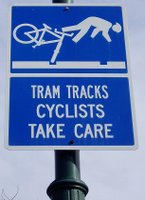Abel Tasman & The Sandflies
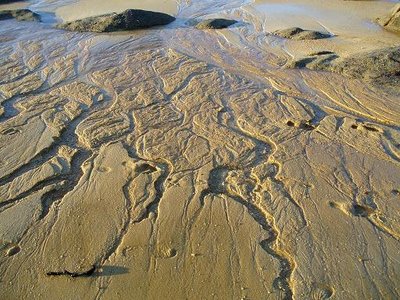
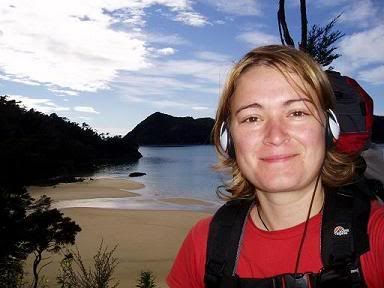
I am COVERED in Sandfly bites. It is literally driving me insane. I had been advised to take an insect repellent with me and though I did, I find it hard to trust any company that makes both the repellent AND the bite-soother. They must not trust their own repellent very much. I may just have to tap off a bit of my blood into a cup and place it next to me at night as a peace offering: here, have a free drink, but please don't bite me!!! At least I now understand why all the locals are always covered top to bottom. I DID feel a little out of place in my T-shirt and shorts.
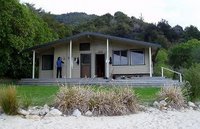 I'm relieved I came this early in the season. Abel Tasman gets about 200,000 visitors a year, the bulk of them between October and March, so I seem to have caught the silence before the storm. While the DOC huts along the track were full most nights, I only occasionally bumped into others while trekking from one hut to the next. There is no electricity, gas or warm water anywhere, so I had to drag a gasstove, food for 4 days, candles and a flashlight with me at all times. Luckily the pack gets heavier the more you eat. Which, incidentally, is something I'm very good at ;-)
I'm relieved I came this early in the season. Abel Tasman gets about 200,000 visitors a year, the bulk of them between October and March, so I seem to have caught the silence before the storm. While the DOC huts along the track were full most nights, I only occasionally bumped into others while trekking from one hut to the next. There is no electricity, gas or warm water anywhere, so I had to drag a gasstove, food for 4 days, candles and a flashlight with me at all times. Luckily the pack gets heavier the more you eat. Which, incidentally, is something I'm very good at ;-)
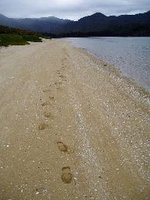 Because of the lack of electricity, the pace of life along the track is very much set by the Sun. Each night, the huts went quiet by 8.30pm (generally when the candles died out) and by 5.30 am we were all up cooking breakfast, watching the Sun rise above the ocean or the mountains. Just as the Sun orchestrated our pace, so did the Moon. Abel Tasman is very much a coastal track and as such, the tides dictate when and where you can cross onward to your next destination. Everyone carries a tide timetable with them, ensuring they don't get trapped in any of the bays along the track.
Because of the lack of electricity, the pace of life along the track is very much set by the Sun. Each night, the huts went quiet by 8.30pm (generally when the candles died out) and by 5.30 am we were all up cooking breakfast, watching the Sun rise above the ocean or the mountains. Just as the Sun orchestrated our pace, so did the Moon. Abel Tasman is very much a coastal track and as such, the tides dictate when and where you can cross onward to your next destination. Everyone carries a tide timetable with them, ensuring they don't get trapped in any of the bays along the track.
Quite often, you reach a tidal crossing point too early and you're sat waiting for the level to drop:
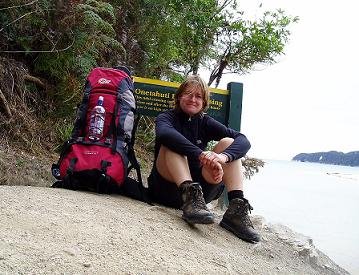
It is greatly amusing when there are people waiting on the other side, hoping to cross over into the direction you just came from. It turns into a staring contest, waiting to see who will attempt to cross first, as most people are too impatient to wait for the waterlevel to drop entirely. Being a short-arse, I generally had to measure up my size against theirs to judge whether their "knee-high" would be safely below my waist-level or not.
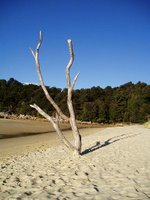 Life along the track is really breathtaking. Even if you cannot name the birds back home, you are familiar with their calls. Out here, all sounds are new and unfamiliar. The screach of the Kiwi when you nip to the loo at night, the BellBird's wake up call in the morning and the Tui's happy chant all day long. I spotted Hector Dolphins, Whales and a Carpet Shark struggling for breath as it was stranded on the beach (A German woman bravely took it by the tail and pushed it back into the sea). At some point, you simply stop taking pictures because your eyes want to just take it all in themselves. No longer to be a distant observer, but to become part of the amazing surroundings.
Life along the track is really breathtaking. Even if you cannot name the birds back home, you are familiar with their calls. Out here, all sounds are new and unfamiliar. The screach of the Kiwi when you nip to the loo at night, the BellBird's wake up call in the morning and the Tui's happy chant all day long. I spotted Hector Dolphins, Whales and a Carpet Shark struggling for breath as it was stranded on the beach (A German woman bravely took it by the tail and pushed it back into the sea). At some point, you simply stop taking pictures because your eyes want to just take it all in themselves. No longer to be a distant observer, but to become part of the amazing surroundings.
While most people hike the track on their own during the day, at night, you all turn into one big family. You cook at the same time and for lack of light to read in, people huddle around the candles to tell stories. It's been a while since I've laughed so hard my stomach cramped up entirely. There are no beds, merely a few raised platforms on which you all lay yourself down to sleep. The heat of the other bodies keeps the hut warm enough and while I always assumed I'd find sharing floorspace with so many others disturbing, I felt comforted by their presence. I can imagine this is what life must have been like for centuries.
I marvel at the ability of humans to find a home amongst strangers so quickly. It must denote our inherent need for this group belonging. While I'd never before met the germans, swedes, americans, kiwis and dutch people I shared the huts with, it only took minutes for the group to find a routine, a base in which we all seemed to feel very comfortable. I think that as long as humans stay true to this part of their nature, travelling on one's own need never be scary or lonely again.
